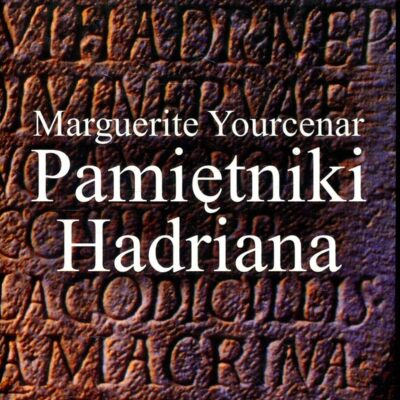Great historical figures whose achievements in the field of culture and state-building are undeniable have always fascinated me. One of such characters is undeniable, the third of the Five Good Emperors, or Hadrian, who was a great philhellene. The only thing I can’t forgive him in a sense is giving up the eastern achievements of his great predecessor, Princepsa Optimus.
The historical novel about him, the famous and widely praised “Diaries of Hadrian”, which was written in the form of a diary by the French-language writer Marguerite Yourcenar (1903 – 1987) did not go well with me. This was despite the fact that it is written with great attention to historical detail. The long paragraphs of this book, written in the form of personal ramblings, bored me a bit, but because of my appreciation of the author’s painstaking work in sifting through many different sources, I finished reading this novel. What is also surprising, in my opinion, is the one-sided assessment of Hadrian’s great predecessor on the imperial throne, i.e. Trajan (called Optimus Princeps by both his contemporaries and descendants), as a ruler engulfed only in the idea of new conquests, allegedly only harmful to the Roman state. This novel, as worth reading, was recommended to me by an acquaintance from the workplace – herself bearing the female form of the name of the title character of the book. My sympathy for the great and memorable figure of Emperor Hadrian did little to help me digest this text.
Finally, it should be said that the novel in question is no match for similar works written by Robert Graves (eg “I Claudius”) or Steven Pressfield (“Alexander the Great”).


